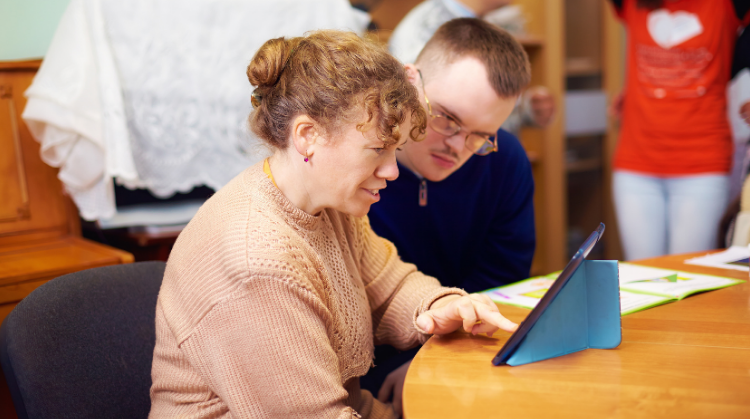Reports call for more support for people with learning disabilities
 Two reports on the effect of COVID-19 on people with learning disabilities launched on 10 December. Carried out by the Social History of Learning Disability (SHLD) research group with the Faculty of Wellbeing, Education and Language Studies (WELS), the research focuses on lessons learned during COVID-19 that can help shape how support for people with learning disabilities can be better organised and better funded, and was supported by Learning Disability England.
Two reports on the effect of COVID-19 on people with learning disabilities launched on 10 December. Carried out by the Social History of Learning Disability (SHLD) research group with the Faculty of Wellbeing, Education and Language Studies (WELS), the research focuses on lessons learned during COVID-19 that can help shape how support for people with learning disabilities can be better organised and better funded, and was supported by Learning Disability England.
Dr Elizabeth Tilley, Senior Lecturer in Health and Social Care and Chair of SHLD, led the research on the first report: Filling in the Gaps: The role of self-advocacy groups in supporting the health and wellbeing of people with learning disabilities through the pandemic, which looked at what self-advocacy groups, across all regions of England, had been doing during the pandemic.
The second report: Keeping connected and staying well: The role of technology in supporting people with learning disability during the coronavirus pandemic was led by Jane Seale, Professor of Education, and found that the right kind of support has kept people with learning disabilities connected and has had a positive effect on their mental health during the pandemic.
The teams worked in collaboration with self-advocate Shaun Picken, from My Life My Choice.
Self-advocacy - “filling in the gaps”
Dr Tilley said: “The breadth and depth of self-advocacy groups’ work during the pandemic was impressive. They responded very quickly, moving much of their work online while also providing essential offline support, and face-to-face practical help where required. Our research shows how and where self-advocacy was ‘filling in the gaps’ left by other services.”
Dr Tilley’s research also makes recommendations for service providers, Government, Commissioners and for people with learning disabilities and their families, based around providing more support and access to technology so that these groups can stay connected. The research emphasises the need for commissioners to recognise the additional work taken on by self-advocacy groups during the pandemic, and to fund them appropriately.
More access to technology needed for connectedness
In her report, Professor Seale points out that despite the benefits of technology, there are many people with learning disabilities who have not been able to use technology to stay connected during the pandemic; partly due to a lack of access to technology and lack of in-home support.
She said: “Before the pandemic, there was evidence to show that people with learning disabilities experienced significant digital exclusion. Our research has revealed two important things. Firstly, the devastating impact this digital exclusion can have on the mental health and well-being of people with learning disabilities. Secondly, what kinds of creative support practices are required to enable people with learning disabilities to successfully access and use technologies to stay well and keep connected.”
She calls on education, health and social care providers and commissioners to fund and distribute technologies to people with learning disabilities and to ensure that organisations that deliver education, health, and social care do not place unnecessary barriers in the way of enabling access to technology and effective in-home support:
“These practices have emerged during a time of crisis, but are unlikely to be sustained after the pandemic without significant commitment from Education, health and social care providers to both provide access to technology and build capacity within the workforce to develop sustainable and effective support practices.”
The reports can be accessed from the Social History of Learning Disability's webpage, where they are also available in an easy read format.
Are you already an OU student?
Request your prospectus
Explore our qualifications and courses by requesting one of our prospectuses today.
Request prospectus